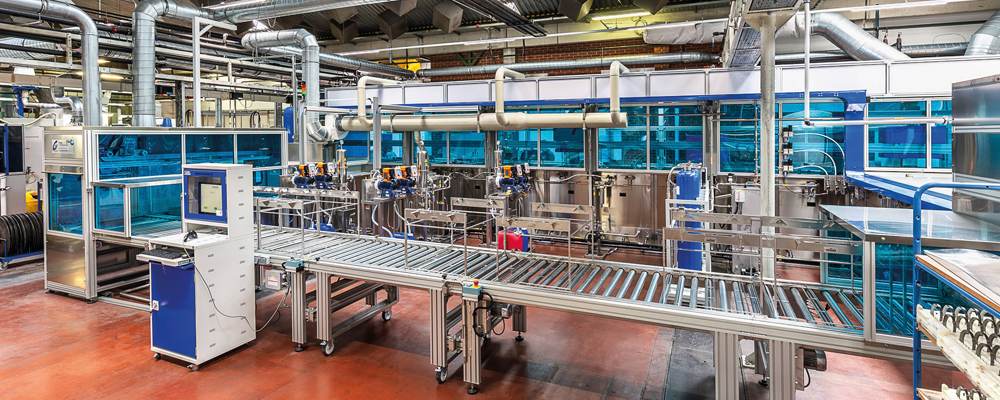
More flexibility in cleaning
The third new system in the continuation of Boehlerit's investment programme is an automatic multi-chamber cleaning system from Novatec. All Boehlerit tools and workpieces have to be cleaned of various types of contamination before or after certain production steps or after completion.
By changing from a stroke-push system with fixed process sequences to a system with two independent translators, individual washing programmes can now be realised for this purpose. For example, it is now possible to repeat or omit individual cleaning basins flexibly - completely adapted to the respective requirement. For this purpose, the system has a total of nine basins, four cleaning basins and five rinsing basins to be precise.
An ultrasound is installed in some of the cleaning basins and an acidic or alkaline cleaning agent is added to the basins, "in each case with its own rinsing basin in between so that the individual cleaning liquids are not carried away", explains Andreas Königshofer, head of the grinding shop. The quality and intensity of the individual cleaning liquids is constantly monitored automatically, which contributes not least to economical and environmentally friendly operation. Overall, the cleaning quality has been raised to a new level. And this directly benefits the adhesion of the hard material layer, a prerequisite from which Boehlerit customers profit directly.
Equipped for the future
Thanks to the high capacity of the cleaning system - which has been doubled compared to the past - Boehlerit is well prepared for the future. The flexibility of the individual cleaning processes as well as the possibility of optimising and, if necessary, accelerating the throughput contribute to a reduction in costs. In addition, the efficiency has increased compared to the previous system.
The reading of orders and shopping baskets with the support of a barcode system in conjunction with the process and data recording of the individual cleaning processes ensures the traceability of each insert. Thanks to the OPC UA interface, this data can be evaluated and processed by means of an MRP system, and the findings can be used to maintain a permanently high quality standard.
